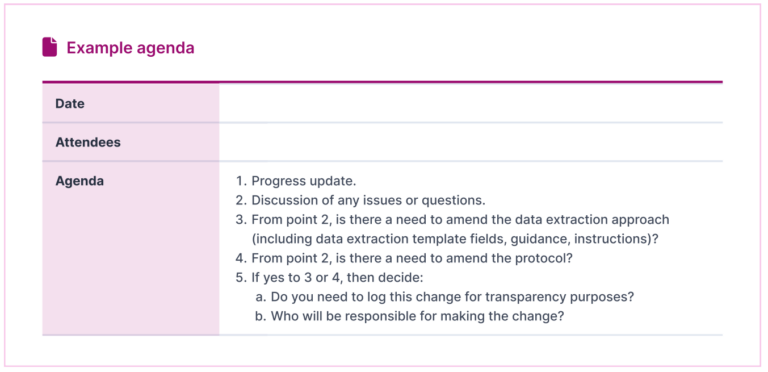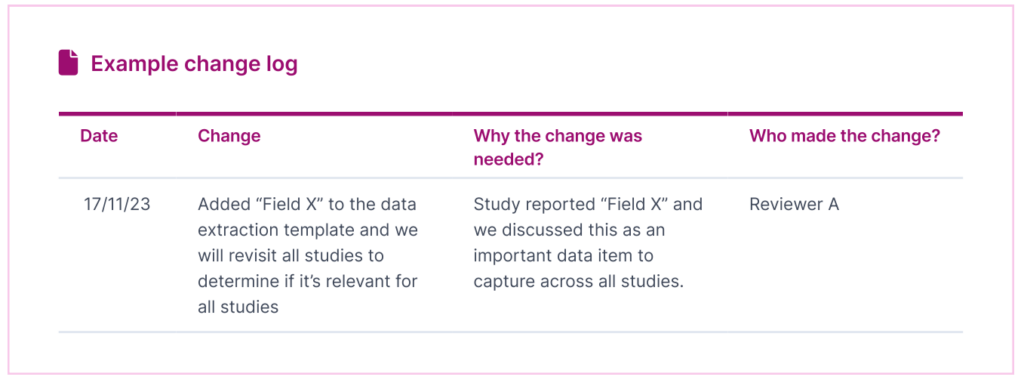Communicate Regularly & Keep a Log for Reporting Checklists
Welcome to Tip 5, our final blog in our series on Top Tips for Data Extraction taken from ‘A practical guide: Data Extraction for Intervention Systematic Reviews’.
In this blog, we delve into the critical role of communication during the data extraction phase. This tip underscores the importance of maintaining an open line of communication within the team. Regular updates not only foster a shared understanding of processes but also facilitate the early identification of potential issues that may necessitate amendments to protocols or templates.
Communicate regularly
When planning your data extraction approach, we recommend that you establish a process for discussing progress and addressing any issues that arise. This can be done in person, virtually, or asynchronously. Effective communication during the data extraction process will enhance team efficiency and increase the likelihood of consistent data collection across studies. Early identification of any issues with the data extraction template or protocol is facilitated through communicating regularly.
However you decide to communicate with your team, you can use this agenda template to aid these discussions.

Keep a log
A systematic review aims to be a thorough and rigorous type of literature review. The methods should be transparent and reproducible. All efforts should be made to define exactly how you intend to capture data consistently and accurately across studies. This means defining your approach, data extraction template, and processes before beginning data extraction.
During the process of data extraction you may need to amend these processes as you find scenarios which you hadn’t anticipated. An example might be extracting data for a study and finding that the data you want to collect doesn’t fit neatly into the data extraction template.
We have discussed the importance of regular communication. It’s this discussion with your team which will help you decide if a change is needed. For example, do you need to add data item(s) to the data extraction template and revisit studies whose data you’ve already extracted to collect this data, or is it sufficient to add this data into a notes field for that one study?
If changes are made, then we recommend you keep a log of the change to aid with transparency.

Summary
So, there we have it! Our final tip highlights the importance of effective communication and keeping detailed records during the data extraction phase. Regular team updates and a structured agenda template are recommended for smooth discussions and issue resolution. Overall, these practices contribute to a well-organized and transparent research process in systematic reviews.
Each tip in this series has been taken directly from our latest ebook on Data Extraction which is available to download now. The ebook has been designed to serve as a vital companion in your research toolkit and has been created in consultation with the systematic review community and independent experts.
Download ‘A practical guide: Data Extraction for Intervention Systematic Reviews’ below.
Don’t forget to share this blog with friends or colleagues and on social media


